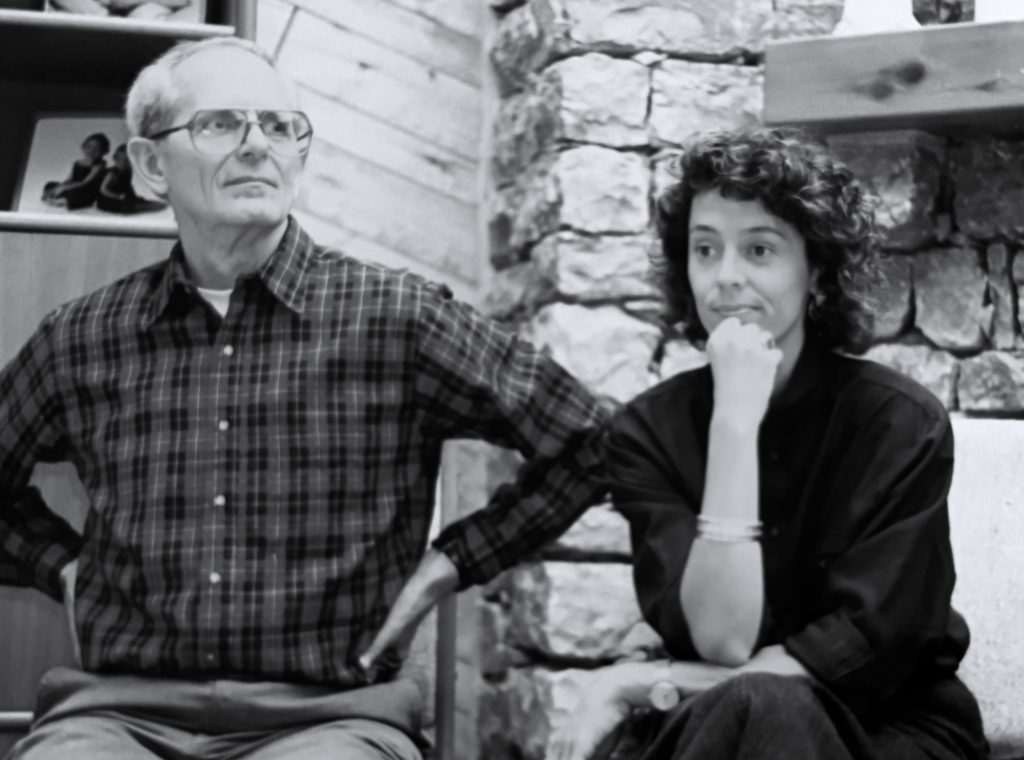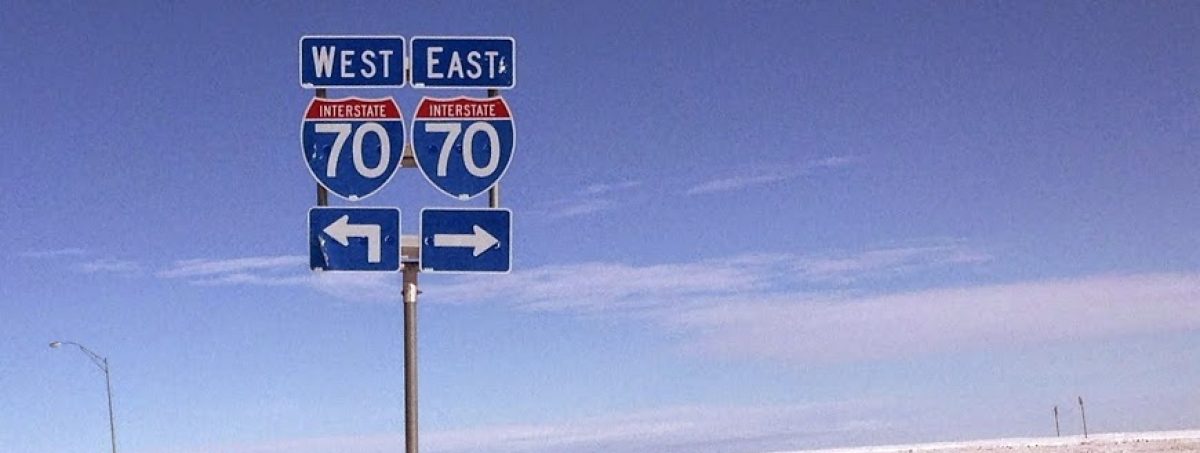
Two different versions of pensive…
When I got in the car after carefully placing the cargo in the front seat, I texted my siblings and told them Dad was riding shotgun and I was on my way back to Mom’s. I hesitated before sending it, wondering if it was inappropriate or possibly disrespectful, but then realized it was exactly what Dad would have said had his dad been riding in the passenger seat in an urn that sat in a box, placed in another box in the front seat. Because Dad was a veteran and will have his ashes interned at a military cemetery, his ashes were accompanied by a flag given to me at the funeral home, appropriately folded into the symbolic tricorn shape with no red or white stripe showing, only the blue field with stars. Picking up his ashes in a Kansas City suburb at least 30 minutes away without traffic was a task on a list of things that had to be tended to and one I said I would do as I had a free morning. I’m glad I agreed to what now felt like an honor despite the rush hour traffic I had to go through to get there. When I glanced over to the passenger seat and saw the box with the tightly folded flag sitting on top of it, I knew it would be a moment I would recall later and more than likely write about because it was a new experience for me because it was my Dad, or his remains, as the funeral home now referred to him, who would make this a story and not just something to check off in a long list of things that needed to be tended to.
When we made our initial trip to the funeral home to sign papers and go over details after Dad passed, my brother, Tom, in preparation for being the one to pick up the ashes, asked if the urn had a screw-off lid; we had been seated around a dining room table in a room that looked like it had been decorated to make families feel at home. Except for the display of jewelry that could be purchased with your loved ones’s fingerprints in the center of the table, it felt like an informal gathering around a dining room table. I don’t recall the woman’s title who we were meeting, possibly the owner, but she took her place at the head of the table after helping Mom into her seat and pouring water for everyone. Once seated, she smiled at my brother and said he was not the first to ask the question.
“Yes, the urn has a screw top lid, and the ashes are in a bag. The urn is then placed in a box, and that box is placed in another box. No need to worry about ashes ending up on your front seat.”
I appreciated the break of solemness with the dose of reality. The subject was difficult, and I was learning the importance of finding the humor and breaking out in laughter as often as possible. At this point, it felt not only good, but necessary for the soul.
It wasn’t my first time transporting ashes. Several years ago, the container of ashes of our yellow lab, Marley, rode in my lap when our family took them to our farm to scatter. I remember thinking the container was heavier than I thought it would be, even though Marley’s weight was down considerably when we had him euthanized. Unlike Marley, Dad’s ashes will not be scattered but will remain in the urn and be interred at a military cemetery. I couldn’t help but glance over to the box, which didn’t look the least bit out of place as boxes often rode shotgun in my car en route to the post office to return something, but never with a flag on top. I turned off the music in my car because I wanted to talk to myself or, if I’m being honest, maybe to the box and the spirit that filled my car. I knew the box only contained the ashes of Dad’s body and not his spirit, but it gave me the same feeling as talking to the headstones of my grandparents when I used to go with Mom and Dad on Memorial Day to lay flowers on their graves. On one such trip, Dad had no blooms available for cutting in his garden, so he stopped at a convenience store and picked up a small bundle of plastic flowers. When he put them on Grandma and Papa’s graves, he added a note that said, “Sorry about the flowers, Dad, it was the best I could do.” His dad raised hybrid irises as a hobby, so he knew flowers well, and the apology was appropriate. Conversations graveside on Memorial Day were not solemn for Dad but rather practical. I followed that lead while conversing down Blue Ridge Boulevard with the box of my dad’s remains riding shotgun and I was smiling for most of the journey. Afterall, I got my humor from my Dad.
I was blessed to have Dad for the entire 69 years of my life, and I’ve seen most of my friends go through this process some decades ago. I had to wonder if they felt the confusion I did right now of grappling with the fact that my physical dad was gone. Forever. I will always carry him inside of me — his humor, his smile, his generosity, and the way he viewed life, but never being able to call him on the phone and follow his sometimes indirect storytelling path is hard for me to wrap my head around. His cell phone has been deleted from his T-Mobile account, and I went through his phone beforehand to make sure he didn’t have any unanswered messages and to check his contact list to make sure everyone had been told about his passing. Still, I can’t take his number out of my phone. And I’m struggling with using the past tense when speaking of him. I wonder… do these issues fade in time? Become more natural? More comfortable? More familiar?
Dad was 96 and had a very good life for 95 and 3/4 years, and that is what I keep reminding myself. A few days after Dad passed, my sister, Susan, and I went to our usual coffee spot near our sister Robin’s house in an urban setting of Kansas City. Exiting the car, we saw a red-tailed hawk perched on a fence post. As hikers, we both were familiar with the bird of prey, but not in an urban setting. Susan looked at me, and I looked at her, and we both nodded. Dad. After an hour in the coffee shop, we returned to the parking lot, where the hawk was still sitting on the post. This time, there was no question. Dad. I later read that “the sudden appearance of a hawk may indicate a loved one who recently passed is sending signs through this spirit animal about their continued presence.“
We both felt a sense of comfort and reassurance. A few days later, I felt the same sense of comfort while I looked over to the box that occupied my passenger seat at a stop light and smiled. You’re still with me, Pops, and I feel your presence. The tightly sealed urn wrapped in bubble wrap in a box that’s in another box with your ashes in it is as close as I’ll ever be to you again physically, but you’ve taught me to be curious and question things that don’t make sense and if you believe something, to trust that belief. I believe you gave Susan and me a nudge with the red-tailed hawk.
I know that processing Dad being forever gone will come in spurts and not always at the most opportune times. In the days leading up to Dad’s death and the weeks that followed, the only people I saw were family, nursing staff, hospice care staff, attorneys, bank employees, and the woman who explained the packaging of the ashes at the funeral home. I’ve been immersed in a place I didn’t anticipate being in on a visit to my hometown to see my sister, Robin, who was recently given the terrible and hard-to-process diagnosis of pancreatic cancer. This process has exhausted me to my core, and I’ve cried more in September than possibly in the entire of my life, yet here I am, still upright, with memories crowding my mind, each one vying for attention. I worry about Robin while in the throes of mourning my father’s death.
I keep circling back to a letter Dad wrote and tucked into my suitcase when I left for college. He typed his letters as his handwriting was difficult to read, always with the oversized “LOVE, DAD” scrawled across the bottom of the page. He said, “This could have been considered the 8th wonder because it is not like me to write letters, except possibly to tell some unsuspecting parent that their child wasn’t graduating.” You didn’t know when you typed that letter, Dad, that it would become one of my most cherished letters and give me the idea to do the same with my children. My kids all got letters that I tucked under their pillows after making their beds in their dorm rooms, something I insisted on doing simply for the letter placement.
“There were times, Laur, when I could have knocked you on your ear, but believe it or not, it was always out of love,” the letter continued. Several months ago, Dad had been admitted into the hospital due to issues with his pacemaker and, within 24 hours, was diagnosed with pneumonia complicated by COPD, followed by being intubated, a very dangerous procedure for a 95-year-old. Two days later, and with much surprise to the doctors, they were able to remove the intubation, and Dad began breathing on his own. I saw him that day, early morning, and it was just the two of us in the room. Maybe it was his near brush with death at that time, or maybe I just caught him at the right moment, but we had one of the best conversations we had ever had despite his difficulty in talking. He told me I was a “real pain in high school, which was a very challenging time…for both of us.” Those words made me smile, and I couldn’t disagree with them because Dad was right. Then he added that he parented me the same way his dad parented him, which meant ignoring a lot of the behavior and letting me be who I needed to be in the same way his dad had done with him. It was honest. It was real. He added that he thought his dad knew he was sneaking out of his bedroom on Saturday nights while in high school and hitchhiking to downtown Kansas City, where he was given playing time with the jazz band The Scamps. I felt more connected to him in that moment than I ever have—his rebellious spirit clearly having made its way into me, although my stories paled in comparison to his.
The letter ended with, “I’m sure I’ll continue to get upset sometimes with you, but I love you so much and always want the best for you. And no matter the struggles, you will be OK.” 8/20/73
9/26/2024. Thanks, Dad, for writing those words to me that I read alone in my dorm room, and now, 51 years later, I’m reading again, alone in my living room. I’m holding onto the “you’ll be OK” part with everything I have right now.
